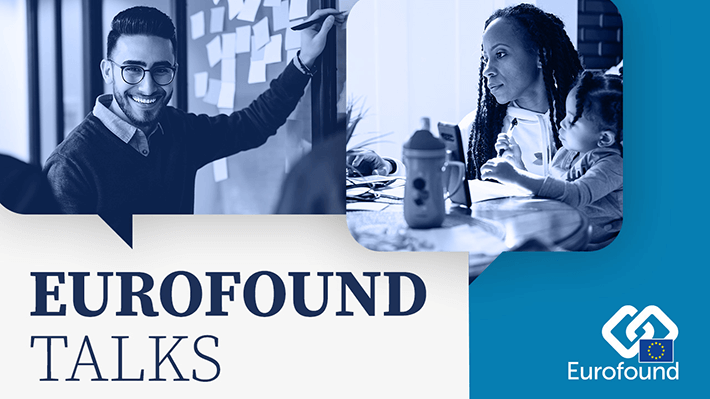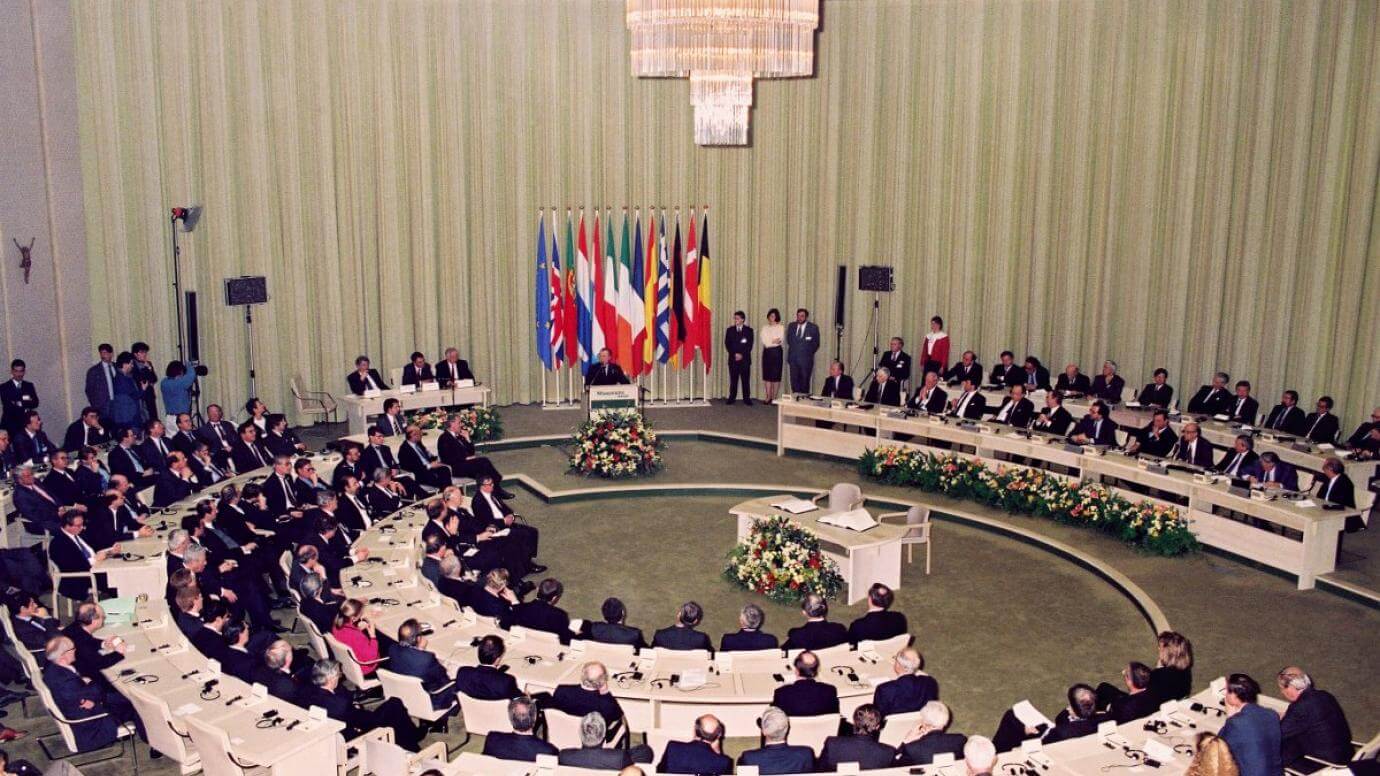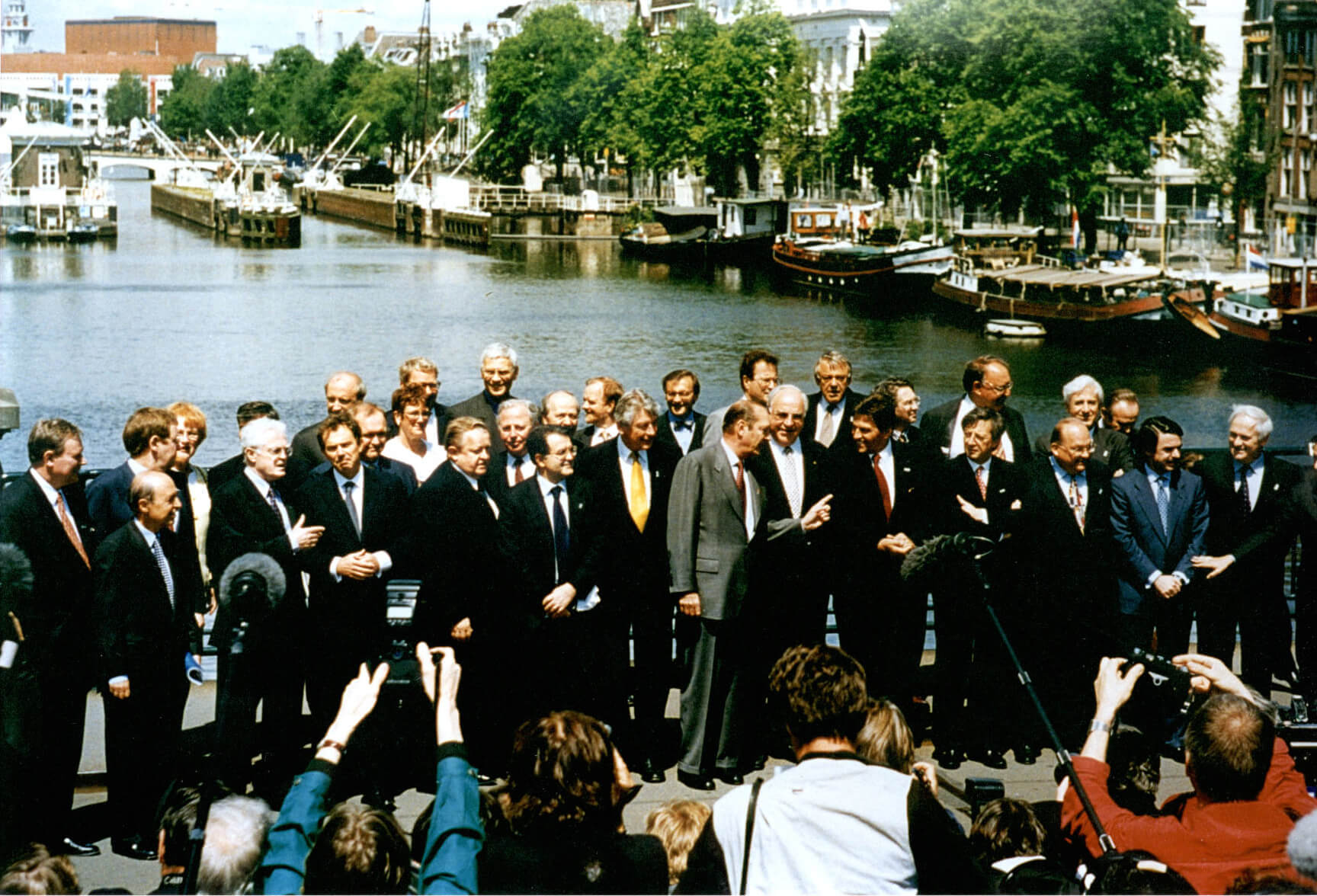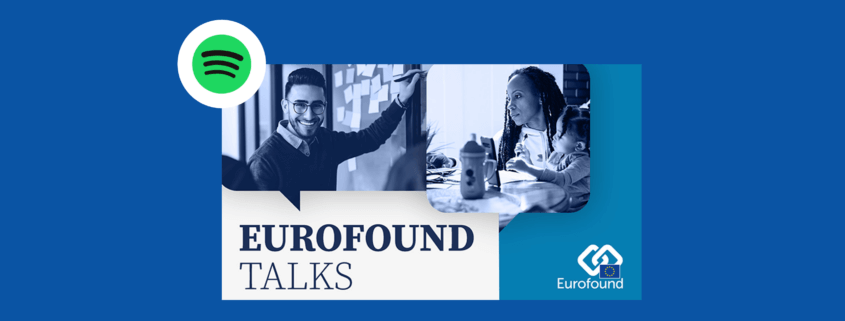Eurofound Dives into How Social Partners Shaped Europe’s Labour Policies
The past 50 years have been a transformative era for Europe, marked by profound social changes, economic shifts, and policy developments.
In a recent episode of the Eurofound Talks podcast, Mary McCaughey engages in a constructive conversation with Maria Jepsen, Deputy Director of Eurofound, and Barry Colfer, Director of Research at the Institute of International and European Affairs (IIEA), to explore the trajectory of European social change, Eurofound‘s pivotal role in these developments, the evolving socio-economic landscape, and the pressing challenges that lie ahead for the European Union.

The dialogue underscores two central themes that explain the last 50 years of the EU social model: the EU enlargement and the imperative to address the dynamic needs of the economy, labour market, and society. These themes are deeply intertwined with the agendas of various actors driving the EU integration process.
The origins of European social policymaking are traced back to the 1972 Paris Summit, marking the inception of a structured approach to social policy.
This was followed by the 1974 Social Policy Programme and the landmark 1975 Equal Pay Directive, which laid the foundation for gender equality in the workplace. By 1977, protections for workers during company transfers to other countries had been established, reinforcing labour rights across borders.
The mid-1980s witnessed significant milestones, including the 1986 Single Market Act and the begining of the 1985 Val Duchesse process, which initiated the European Social Dialogue.

Jacques Delors said that social dialogue is “one of the foundations of a democratic society”
This period also saw the emergence of supranational social partners, a unique feature of the European Union that cannot be found elsewhere in the world.
Supranational EU Social partners can influence and propose legislation. For that, the Val Duchesse process, revisited in 2024 to strengthen its impact, remains a cornerstone of EU social dialogue.
The 1990s brought further advancements, such as the 1993 Directive on Working Time and the 1994 European Works Council Directive, both outcomes of EU social dialogue.
The 1997 Directive on Part-Time Work and the 1998 Framework Directive, which spawned 25 legislative pieces protecting workers, highlighted the EU’s commitment to labour rights.
Establishing the European Agency for Safety and Health at Work (EU OSHA) further underscored this commitment. Also, the introduction of the Euro as the single currency necessitated a European Employment Strategy, emphasising multilateral learning and boosting employment rates.

Key treaties, including the 1992 Maastricht Treaty and the 1997 Amsterdam Treaty, reinforced the EU’s social dimension. The 2017 European Pillar of Social Rights, with its 20 principles, marked a renewed emphasis on EU policymaking, addressing contemporary challenges such as the gender pay gap through the Pay Transparency Directive, platform workers’ rights, adequate minimum wages, and work-life balance.
The podcast also explores “softer policymaking” strategies, including long-term care initiatives in response to demographic changes and the EU Child Guarantee.
The absence of a sanction system is noted, with member states holding each other accountable to achieve common goals. Maria Jepsen emphasises the collective nature of these efforts, stating:
“The idea is that we need to reach these targets together, so we need to go through this path together. The overall design aims to ensure that national policies contribute to the European Union’s interest.”
Maria Jepsen
Deputy Director of Eurofound
Reflecting on the past 50 years, the podcast highlights the stark contrasts between contemporary society and that of the 1970s. The European family, once a core economic unit, has seen its influence wane while communication across borders has become seamless.

The 1973 economic crisis and the subsequent rise in unemployment to 10% by 1975 marked a period of slow growth. The late 1970s and early 1980s saw the advent of vibrant communication societies, increased travel, and the integration of computers into office work. The European economy shifted towards a service-oriented model, with women’s participation in the labour market evolving significantly.
The discussion also raises critical questions about innovation and competitiveness. Barry Colfer argues:
“Our social model is a guarantor of the Union’s cohesion. In fact, one-third of total EU funding is allocated to cohesion funds, aiding member states that may be lagging behind. This model is essential for maintaining the Union’s unity and competitiveness.”
Barry Colfer
Director of Research
Institute of International and European Affairs (IIEA)
In summary, the podcast provides a comprehensive overview of the EU’s social policy evolution, highlighting key legislative milestones, the role of social dialogue, and the challenges of adapting to a rapidly changing world.
As a European social partner recognised by the European Commission, CEC European Managers was officially granted the social partner statues in 1999. This recognition allows CEC European Managers to participate in the European social dialogue, representing European leadership and managerial staff in discussions and negotiations on EU social and employment policies.




